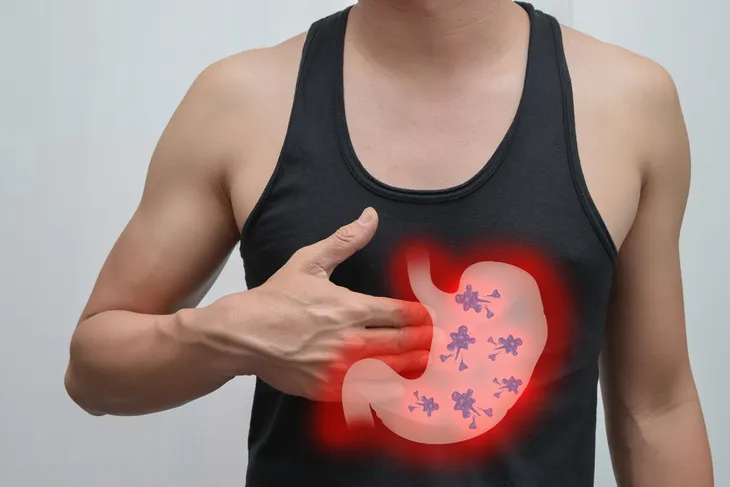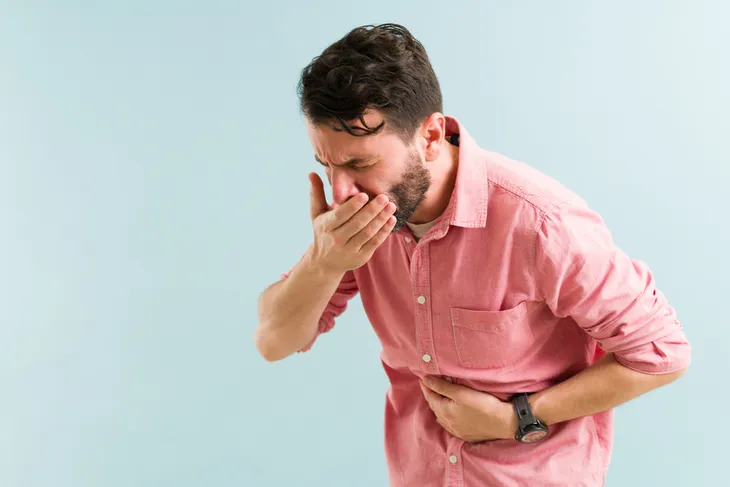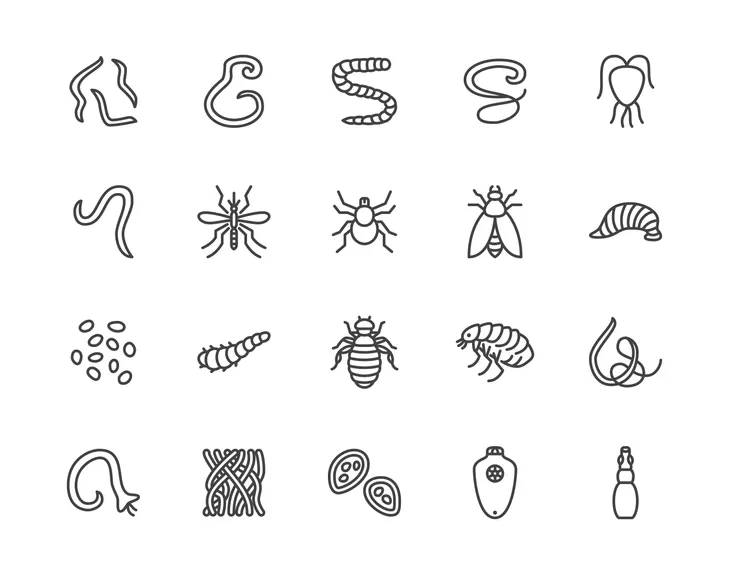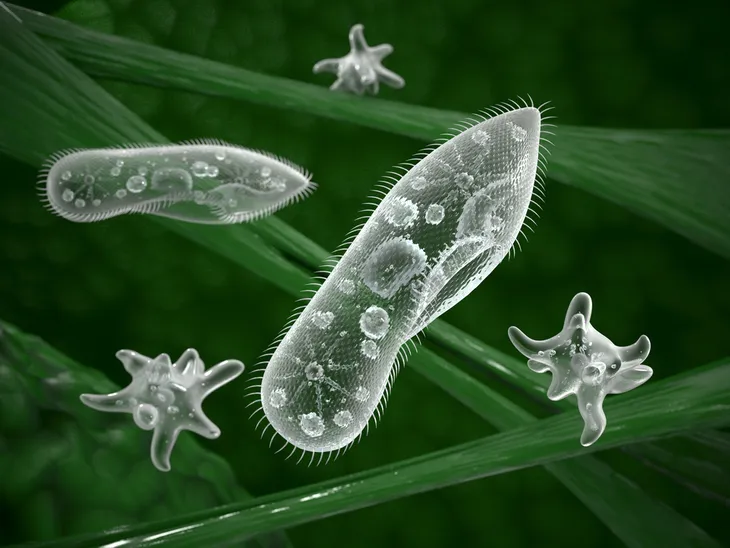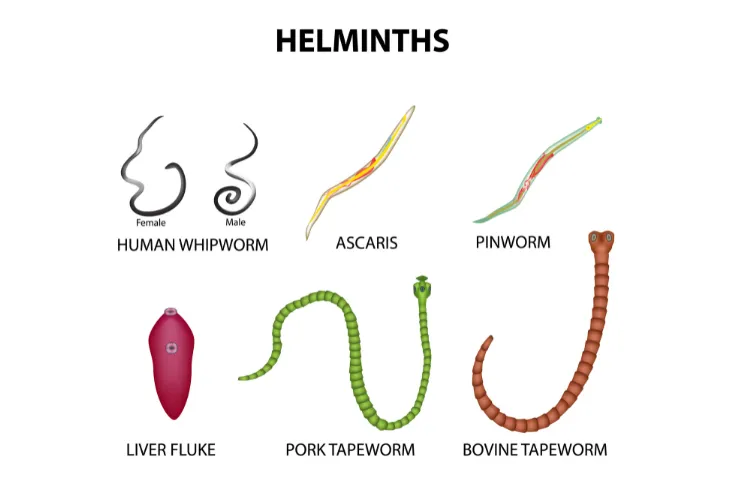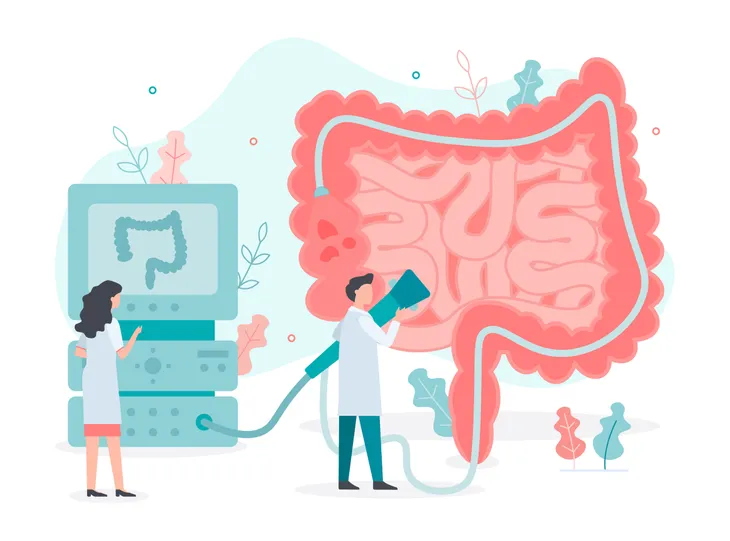- Parasites are organisms that rely on other organisms, called a host, to survive.
- A parasitic infection can cause a range of uncomfortable and painful symptoms. In some cases, it can be fatal.
- Luckily there are treatment options available and steps you can take to prevent contracting a parasite in the first place.
Parasites are organisms that live on or in a host organism. They rely on the host for survival and without the host, the parasite cannot live or thrive. Parasites can spread diseases to humans which can cause infections, and in some cases, it can be fatal.
The best way to protect yourself from parasites is by getting informed. Let’s take a look at the key warning signs of a parasitic infection, as well as what causes them, how to treat an infection, and ways to prevent parasites in the first place.
What Is a Parasitic Infection?
Parasites are organisms that rely on other organisms, called a host, to survive. Some are microscopic, meaning they’re not visible to the naked eye, while others are visible. Additionally, Healthline says some parasites don’t noticeably affect their host while others thrive and invade their host making them sick and causing a parasitic infection.
Parasitic infections are a big risk in tropical and subtropical regions of the world which is why travelers need to be cautious. However, the source points out they can also occur in the U.S. too. Common parasitic infections to be aware of in the U.S. include trichomoniasis, giardiasis, toxoplasmosis, and cryptosporidiosis.
Warning Signs of a Parasitic Infection
According to the Sydney Gut Clinic, some parasites can consume your food which can leave you hungry after eating. This can also cause an inability to gain weight. Other parasites may feed off your red blood cells which can lead to anemia and others may even lay eggs which can cause itching, irritability, and insomnia.
Symptoms of a parasitic infection can vary depending on the parasite you have but some of the most common warning signs include stomach cramps and pain, nausea or vomiting, dehydration, weight loss, and digestive problems. An infection may also cause swollen lymph nodes, skin problems, muscle or joint pain, mood changes, constant hunger, anemia, unexplained feelings of anxiety, teeth grinding, and difficulty sleeping. Since these symptoms can be similar to other health problems, it’s important to inform your doctor to get a proper diagnosis.
Causes of Parasitic Infections
According to the Centers for Disease Control and Prevention (CDC) there are three main types of parasites that can cause disease in humans. They are protozoa, helminths, and ectoparasites.
Each type of parasite looks different and can affect you differently too. Let’s take a closer look into how these three parasites can affect humans next.
Human Parasite: Protozoa
The CDC describes protozoa as “microscopic, one-celled organisms that can be free-living or parasitic in nature.” This type can multiply in humans, which helps them survive but also allows them to pass serious infections to their host.
Protozoa parasites that live in human intestines are transmitted through a fecal-oral route, such as by drinking contaminated water or food or from person-to-person contact. Whereas protozoa that live in the blood or tissue are transmitted by an arthropod vector, which means by a bite of a mosquito or sand fly.
Human Parasite: Helminths
Unlike protozoa, helminths are usually visible to the naked eye in their adult stages. They can also be free-living or parasitic in nature. The CDC also says when helminths are in their adult form, they can’t multiply in humans. The source says there are three groups of helminths that are human parasites, including:
- Roundworms (nematodes): the adult forms can live in the gastrointestinal tract, blood, lymphatic system, or subcutaneous tissue. They’re often found in warm places with poor sanitation and spread through soil mixed with infected feces or by eating raw infected meat.
- Flatworms (platyhelminthes): include the cestodes (tapeworms) and trematodes (flukes). This parasite emerges from snails and goes through a person’s skin and into their blood where they mature into adults. You can get them if you swim in freshwater where infected snails live.
- Thorny-headed worms (acanthocephalans): the adult forms live in the gastrointestinal tract.
Human Parasite: Ectoparasites
The third type of human parasite is known as ectoparasites. Some examples of these parasites include mosquitoes, ticks, fleas, lice, and mites. What all of these organisms have in common is they live on the outside of the host and can attach and burrow into the skin and remain there for long periods of time.
Not only can these parasites cause painful bites, but they can also transmit harmful infectious diseases to humans. For example, lice can spread trench fever, typhus, and relapsing fever whereas mites can cause streptococcal skin infections, renal disease, and rheumatic fever. Fleas can spread spotted fever, plague, and typhus and mosquitoes can spread West Nile virus, yellow fever, malaria, and other infectious diseases. Finally, ticks are most known for spreading Lyme disease but they can also spread encephalitis and rheumatic fever.
Who’s At Risk?
Anyone can get a parasite and develop a parasitic infection, however, some individuals have a greater chance than others. According to Healthline, you’re most likely to get a parasitic infection if you have a compromised immune system or if you’re currently sick with another illness. But that’s not all.
Individuals who live in or like to travel to subtropical or tropical areas of the world are also at a greater risk. As are people who don’t have access to clean drinking water. Swimming in ponds, rivers, or lakes where parasites are common can also increase your risk. Finally, you’re at a greater risk of a parasitic infection if you work in childcare, with soil, or work in an occupation where you come into contact with feces regularly.
What to Know About Transmission of Parasitic Diseases
Parasites can be passed to humans in a number of ways. For starters, pets can carry parasites and pass them on to their humans, known as a zoonotic disease. The CDC also says that parasites can be bloodborne, meaning the parasite is found in the bloodstream of an infected person and then is transmitted to other people through exposure to infected blood (such as sharing needles or blood transfusions).
The source also notes that many parasites can be transmitted through food, including protozoa and helminths. Common culprits include undercooked meat, fish, crabs, mollusks, as well as raw vegetables that have been contaminated by human or animal feces. Parasites can also live in water sources and be transmitted to humans by drinking or swimming in contaminated water. Finally, parasitic diseases can also be transmitted through insects.
When to See a Doctor
Parasitic infections can cause a range of health issues that can result in painful or uncomfortable symptoms. If you’re experiencing any of the symptoms we listed above, it’s important to book an appointment with your doctor. While some of the symptoms may be a sign of another less serious illness, it’s best to get to the bottom of the cause in the event you do have a serious parasitic infection.
Your doctor will be able to review your medical history, evaluate your symptoms, and use a variety of tests to confirm a diagnosis. Let’s take a look at what that may entail next.
How Are Parasitic Infections Diagnosed?
Your doctor will start by reviewing your symptoms and it’s important to let them know if you traveled recently. According to Medical News Today, your doctor may order a variety of tests, such as a fecal exam, endoscopy, colonoscopy, blood test, or imaging test to confirm a diagnosis.
Fecal exams are common if you’re experiencing gas, diarrhea, or other stomach symptoms. The samples look for parasites and parasite eggs. If a stool sample doesn’t confirm a diagnosis but your doctor still suspects a parasite, they may order an endoscopy, which involves inserting a thin tube (called an endoscope) through your mouth into the intestines. A colonoscopy may also be used instead of an endoscopy. During this procedure, a tube is inserted through the rectum to examine the intestines.
Your doctor may also recommend a blood test that looks for antibodies or parasite antigens. Finally, imaging tests, such as X-ray, magnetic resonance imaging (MRI) scan, or computerized axial tomography (CAT), may also be helpful in confirming a diagnosis. Imaging tests can “help detect parasite-associated lesions in a person’s organs,” explains the source.
Treatment
Treatment will vary depending on the type of parasitic infection you have. That said, the most common form of treatment is medication. There are a variety of medications that help eliminate parasites, but ultimately, your doctor will determine which one is best for you.
Other treatment strategies aim to help reduce your symptoms. For example, if you’re experiencing diarrhea, you have an increased risk of dehydration. So, to prevent this, your doctor will recommend drinking plenty of fluids to stay hydrated.
How to Prevent Parasites
The good news is you can reduce your risk of contracting a parasitic infection by following a few simple steps. For starters, get into the habit of washing your hands regularly and especially after handling uncooked food, feces, or soil.
You should also always cook food to its recommended internal temperature and drink clean water. If you’re traveling, err on the side of caution and only drink bottled water and use bottled water to brush your teeth. Also, avoid swallowing water when swimming in ponds, rivers, or lakes. You can also protect yourself from ectoparasites by wearing protective clothing, using mosquito nets, and wearing bug repellent.
If you think you have a parasitic infection, contact your doctor. Early intervention is key. Treating the infection early can help clear up your symptoms and help prevent the spread of infection to other people.

